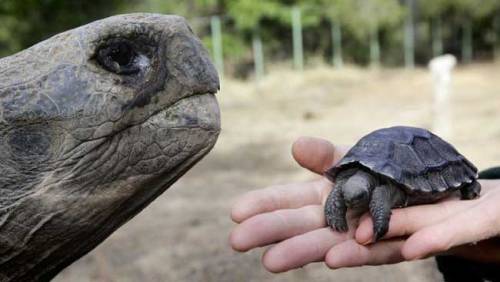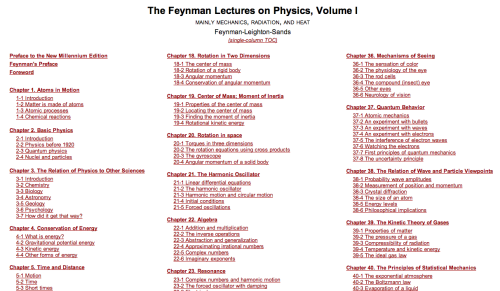Emily, A Process Engineer At GE Aviation In Auburn, AL Is All Suited Up To Remove A Print From A Direct


Emily, a process engineer at GE Aviation in Auburn, AL is all suited up to remove a print from a Direct Metal Laser Melting machine. These machines additively manufacture metal components for CFM’s best-selling LEAP jet engine, printing in 20 micron layers — roughly 1/3 the width of a human hair.
More Posts from Dotmpotter and Others

The New England Climate Adaptation Project (NECAP) got local citizens and officials in four coastal towns to engage in role-playing games about climate change tailored to their communities, while conducting local polling about attitudes and knowledge about climate risks. In so doing, the project helped the towns reach new conclusions about local initiatives to address the threats posed by climate change— which in coastal communities may include rising sea levels and increased storm surges that can lead to flooding.
“One hour of conversation can completely alter people’s sense [and show] that this is a problem they can work on locally,” says Lawrence Susskind, the Ford Professor in Urban Studies in MIT’s Department of Urban Studies and Planning (DUSP), who led the project and has now co-authored a new book detailing its results. “There are a bunch of things local governments can do, and people can do for themselves — that communities can do.”
The findings stem from years of research and organizing in four places: Wells, Maine; Dover, New Hampshire; Barnstable, Massachusetts; and Cranston, Rhode Island. The new book on the effort, “Managing Climate Risks in Coastal Communities,” has just been released by the academic publisher Anthem Press.
Among the many findings of the project is that residents of these coastal communities were typically far more concerned about the consequences of climate change than local politicians realized.

I think it’s a cool engineering experiment but if he really is pursuing this to give green spaces to under served urban communities, then proposing it to be built in LES is fallacy. That area already has parks close by and is inhabited by at least the upper 30% (economically) of the city. What would be spectacular is if the technology they’ve developed for channelling sunlight could be used in subway stations that people already use. Plants and sunlight there would make the lives of millions of commuters across the subway network so much better. This disused trolley place should be made into an urban farm me thinks :)

Check in: The Tokyo hotel where guests can curl up with 1,700 good books
Book and Bed, a new Tokyo hotel, has created the sort of space that is impossible to leave. It is a cheap and cheerful dorm with a difference: guests’ bunk beds are hidden behind library shelves filled with hundreds of books in Japanese and English. | Read more

Here’s a recent interview I did with Futurism.



Wanted: Shredder for five million tires dumped in Spain
Spanish authorities are struggling to dispose of five million tires dumped on a site close to a housing development north of Toledo. The 90,000 tons’ worth of tires have been dumped there since 2002.
Environmentalists say that should a fire break out, it could not be extinguished with water and would have to be smothered with earth. In the event of a fire, Madrid’s main airport would likely have to be shut down and an estimated 11,000 homes evacuated. | Read more

Baby Tortoises Show Up In The Galapagos For The First Time In Over A Century
There hadn’t been one single baby tortoise sighting in more than a century on the Galapagos Island of Pinzon, until a small group of the tiny, shelled youngsters were spotted this year.
The recent births are helping to pull the critically endangered animals back from the brink of extinction after they were nearly laid to waste as a result of human activity.
This is huge news for a species that has been struggling to survive for a century, relying on humans raising young tortoises bred in captivity until they are large enough to not fall prey to rats and predators.
Shaken: cocktail kits by mail


Shaken is a UK startup that sells subscriptions to “the best cocktails you’ve ever made.” Every month, they send you a handsome box with several bottles of rare and delicious booze, small-batch bitters, and a cocktail recipe explaining the history, chemistry and practice of some classic or novel cocktail.
You bring this stuff into your kitchen and play with it, mixing drinks according to the recipe or its variants, or your taste, according to your preference. They supply everything except ice, fruit, shakers and glassware, and each box has enough booze for four drinks.
The Shaken folks took over my old offices in London when I moved to LA this summer and I got to try some of their packages before I left. They turned me on to what is literally some of the best booze I’ve ever drunk (particularly the Plantation rums, which are finished in Cognac casks and taste like nothing you’ve ever tried before – there’s one that finishes exactly like a smoky Islay, which is indescribably brilliant).
Shaken doesn’t assume that you’re a hardcore cocktail fan, and the recipes are simple to follow. But they strike a great balance for people who want to go beyond, with ideas for refining and improving the basic recipe.
The boxes are no-obligation and you can skip a box any time you feel like it.
Read the rest
On a fossil-hunting trip with her family, five-year-old Daisy Morris found the remains of a previously undiscovered dinosaur, which is now named Vertidraco daisymorrisae. The new dino is not only a previously unknown species, but an unknown genus, making Daisy’s find a really big deal. It’s a pterosaur — a winged flying dino — about the size of a crow, which lived 115 million years ago.


Richard Feynman’s legendary lectures on physics, all fifty-two chapters, are now available to read online via Caltech.
Of course, you can always watch seven of them in video form thanks to Bill Gates.
If anyone needs me, I’ll be in my physics bunk.
-
 themarketingarea reblogged this · 8 years ago
themarketingarea reblogged this · 8 years ago -
 themarketingarea reblogged this · 8 years ago
themarketingarea reblogged this · 8 years ago -
 actualbluesargent liked this · 9 years ago
actualbluesargent liked this · 9 years ago -
 engineering-girls reblogged this · 9 years ago
engineering-girls reblogged this · 9 years ago -
 companioncube76 reblogged this · 9 years ago
companioncube76 reblogged this · 9 years ago -
 pyromaster225 reblogged this · 9 years ago
pyromaster225 reblogged this · 9 years ago -
 admax reblogged this · 9 years ago
admax reblogged this · 9 years ago -
 dominato67 liked this · 9 years ago
dominato67 liked this · 9 years ago -
 mikejudd liked this · 9 years ago
mikejudd liked this · 9 years ago -
 dotmpotter reblogged this · 9 years ago
dotmpotter reblogged this · 9 years ago -
 you-can-now-blog liked this · 9 years ago
you-can-now-blog liked this · 9 years ago -
 dynemech reblogged this · 9 years ago
dynemech reblogged this · 9 years ago -
 dynemech liked this · 9 years ago
dynemech liked this · 9 years ago -
 dragon-h liked this · 9 years ago
dragon-h liked this · 9 years ago -
 joquer2 liked this · 9 years ago
joquer2 liked this · 9 years ago -
 admax liked this · 9 years ago
admax liked this · 9 years ago -
 nanophile liked this · 9 years ago
nanophile liked this · 9 years ago -
 i-am-carbon14 reblogged this · 9 years ago
i-am-carbon14 reblogged this · 9 years ago -
 fornowimwinter liked this · 9 years ago
fornowimwinter liked this · 9 years ago -
 wolfkitty-hybridfur liked this · 9 years ago
wolfkitty-hybridfur liked this · 9 years ago -
 medarda liked this · 9 years ago
medarda liked this · 9 years ago -
 edeedub reblogged this · 9 years ago
edeedub reblogged this · 9 years ago -
 edeedub liked this · 9 years ago
edeedub liked this · 9 years ago -
 giothadon reblogged this · 9 years ago
giothadon reblogged this · 9 years ago -
 snailshit liked this · 9 years ago
snailshit liked this · 9 years ago -
 mambos-ilustrados liked this · 9 years ago
mambos-ilustrados liked this · 9 years ago -
 timcookieman liked this · 9 years ago
timcookieman liked this · 9 years ago -
 iiixgreedxiii liked this · 9 years ago
iiixgreedxiii liked this · 9 years ago -
 medblr-td liked this · 9 years ago
medblr-td liked this · 9 years ago -
 lostinsystem liked this · 9 years ago
lostinsystem liked this · 9 years ago -
 hambutties reblogged this · 9 years ago
hambutties reblogged this · 9 years ago -
 dude-vader liked this · 9 years ago
dude-vader liked this · 9 years ago -
 hemant93-sahu-blog liked this · 9 years ago
hemant93-sahu-blog liked this · 9 years ago -
 txchnologist reblogged this · 9 years ago
txchnologist reblogged this · 9 years ago

